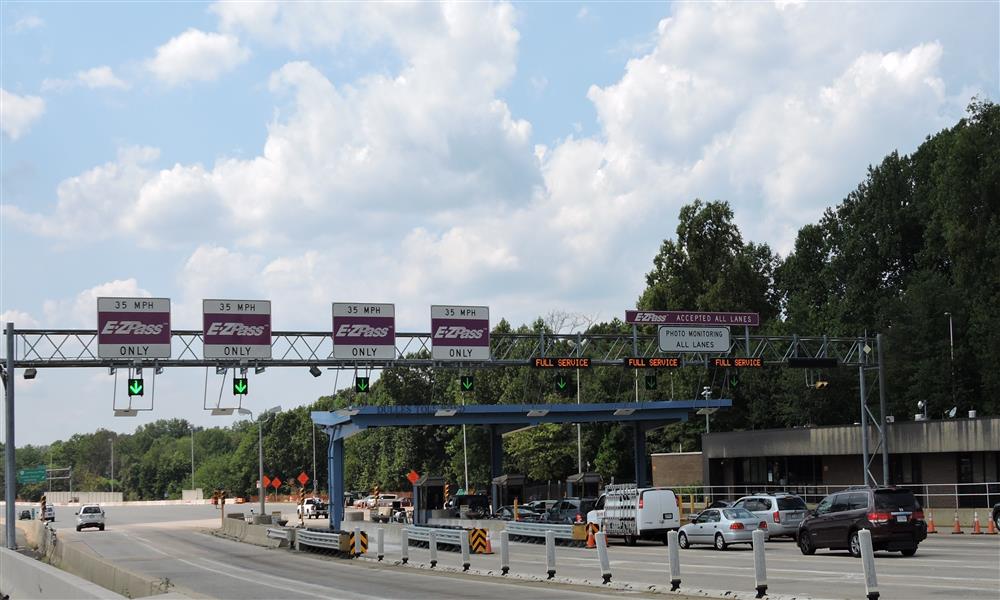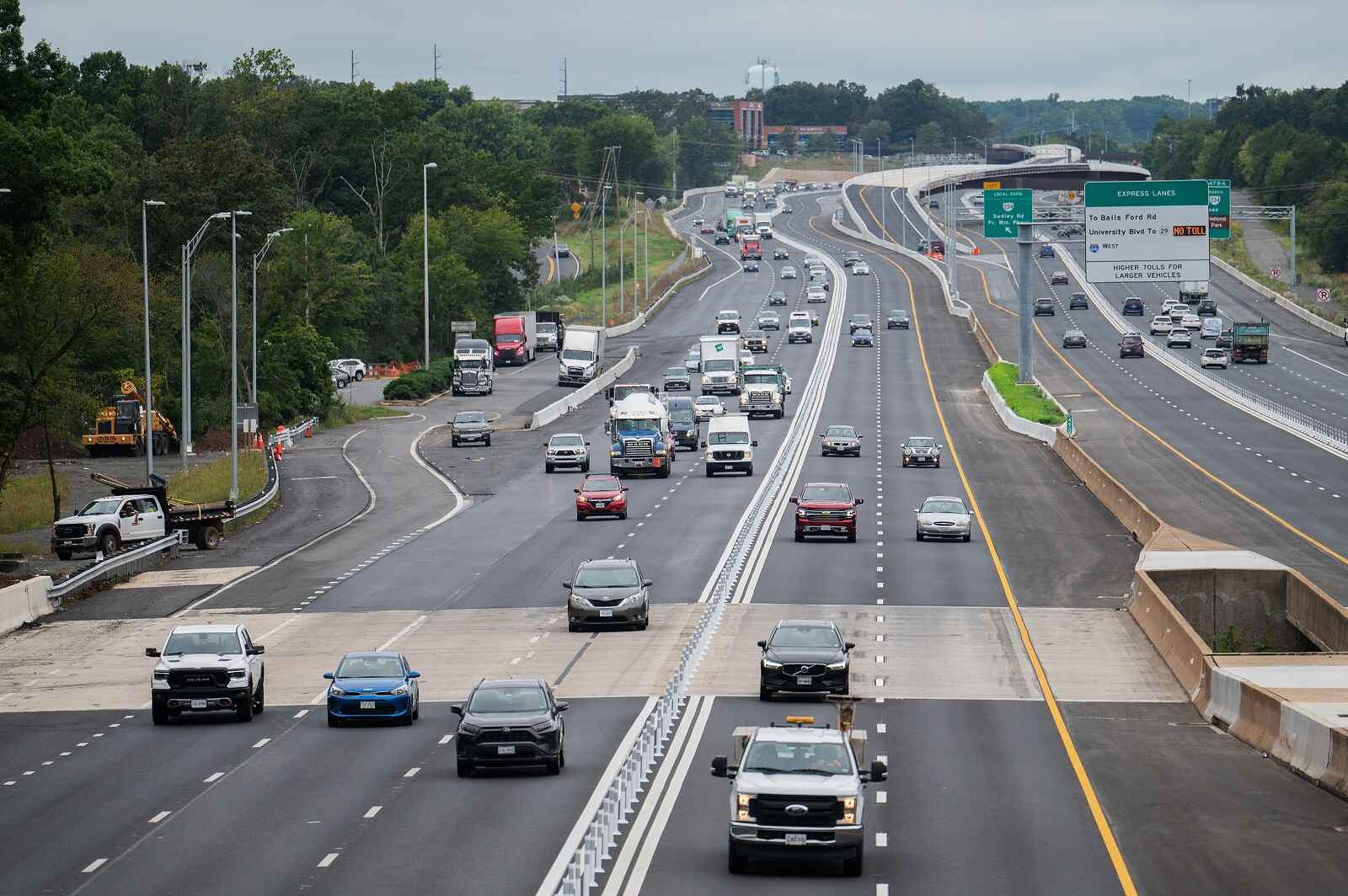Virginia Toll Road RV Charge: A Comprehensive Guide For Road Warriors
Driving through Virginia with an RV can be a thrilling experience, but understanding the toll road charges is crucial to avoid unexpected expenses. Whether you're planning a long road trip or a quick getaway, knowing the specifics of the Virginia toll road RV charge can save you time and money. This article will provide you with all the essential information you need to navigate Virginia's toll roads with confidence.
As recreational vehicles (RVs) become increasingly popular for travel and adventure, understanding the nuances of toll road systems becomes even more important. Virginia's toll roads are designed to manage traffic flow and generate revenue for road maintenance and improvements. However, RV owners need to be aware of the unique charges that apply to their vehicles.
In this guide, we'll break down everything you need to know about Virginia toll road RV charges, including rates, payment methods, exemptions, and tips for saving money. Whether you're a seasoned traveler or a first-time RV enthusiast, this article has something for everyone.
Read also:Unveiling The Potential Of Wake Government Real Estate
Table of Contents
- Introduction to Virginia Toll Roads
- Overview of RV Toll Charges
- Vehicle Classification for RVs
- Payment Options for RV Owners
- Virginia Toll Road Rates
- Using Transponders for RVs
- Exemptions and Discounts
- Tips for Managing RV Toll Costs
- Advancements in Toll Road Technology
- Frequently Asked Questions
Introduction to Virginia Toll Roads
Virginia's toll road system is an integral part of the state's transportation network. Managed by the Virginia Department of Transportation (VDOT), these roads help alleviate congestion and fund infrastructure projects. Drivers using these roads are charged based on the type of vehicle they are operating, and RVs are no exception.
The state uses a tiered system to classify vehicles, with RVs falling into specific categories depending on their size and weight. This classification directly impacts the toll charges you'll incur while traveling through Virginia. Understanding this system is key to planning your trips effectively.
Why Are Toll Roads Important?
Toll roads play a critical role in maintaining road quality and safety. The revenue generated from tolls is reinvested into road repairs, construction, and traffic management systems. For RV owners, this means smoother roads and better driving conditions, which can enhance your travel experience.
Overview of RV Toll Charges
RV toll charges in Virginia vary based on the vehicle's classification and the specific toll road being used. Generally, RVs are categorized as commercial vehicles due to their size and weight, which often results in higher toll fees compared to standard passenger cars.
Here are some key points to consider:
- RVs are typically classified as Class 2 or higher vehicles.
- Tolls are calculated per axle, so larger RVs with more axles will incur higher charges.
- Payment methods differ depending on the toll road and the technology used.
Understanding the Charge Structure
Virginia toll roads use a combination of manual and electronic payment systems. The charge structure is designed to ensure fair pricing based on vehicle size and road usage. For RV owners, it's important to familiarize yourself with the different toll roads and their respective rates.
Read also:Patrick Flueger Rising Star In The World Of Entertainment
Vehicle Classification for RVs
In Virginia, vehicles are classified into different categories based on their size, weight, and number of axles. RVs are typically categorized as follows:
- Class 2: Two-axle vehicles with a gross weight over 10,000 pounds.
- Class 3: Three-axle vehicles.
- Class 4 and above: Vehicles with four or more axles.
This classification determines the toll rates applicable to your RV. It's essential to know your vehicle's classification to avoid overpayment or underpayment at toll booths.
How to Determine Your RV's Classification
To determine your RV's classification, consult your vehicle's registration documents or check with the manufacturer. Additionally, you can contact the Virginia Department of Motor Vehicles (DMV) for guidance on vehicle classification rules.
Payment Options for RV Owners
Virginia offers several payment options for toll road users, including RV owners. These options include cash payments, electronic toll collection (ETC) systems, and transponders. Choosing the right payment method can streamline your travel experience and save you money in the long run.
Common payment methods include:
- Express Toll Pass (E-ZPass): A widely used transponder system in Virginia.
- Cashless Tolling: Automatic billing based on license plate recognition.
- Prepaid Accounts: Allows you to load funds in advance for toll payments.
Advantages of Using E-ZPass
E-ZPass is one of the most convenient payment options for RV owners traveling through Virginia. By using a transponder, you can bypass toll booths and avoid long lines. Additionally, E-ZPass users often receive discounts on toll rates, making it a cost-effective choice.
Virginia Toll Road Rates
Toll rates in Virginia vary depending on the road, the time of day, and the type of vehicle. RV owners should be aware of peak and off-peak rates, as well as any additional fees that may apply. Below is an overview of the typical toll rates for RVs in Virginia:
- Class 2 Vehicles: $0.75 to $2.50 per toll segment.
- Class 3 Vehicles: $1.25 to $4.00 per toll segment.
- Class 4+ Vehicles: $2.00 to $6.00 per toll segment.
These rates are subject to change, so it's important to check the latest information before your trip.
Factors Affecting Toll Rates
Several factors influence toll rates in Virginia, including:
- Time of day: Peak hours often have higher rates.
- Distance traveled: Longer distances result in higher charges.
- Payment method: Cashless tolling and transponders may offer discounts.
Using Transponders for RVs
Transponders are small devices that allow for seamless toll payments without stopping at toll booths. For RV owners, using a transponder like E-ZPass can significantly enhance your travel experience. These devices are easy to install and offer numerous benefits, including:
- Automatic payment processing.
- Discounted toll rates for registered users.
- Convenience and time savings.
How to Get an E-ZPass Transponder
To obtain an E-ZPass transponder for your RV, follow these steps:
- Visit the official E-ZPass website or a local service center.
- Provide your vehicle's registration details.
- Set up a prepaid account to cover toll charges.
Exemptions and Discounts
Virginia offers various exemptions and discounts for certain types of vehicles and drivers. While RVs may not qualify for all exemptions, there are still opportunities to save money on toll charges. Some of the most common exemptions include:
- Military personnel: Active-duty service members may qualify for reduced rates.
- Commercial vehicles: Certain RVs used for business purposes may be eligible for discounts.
- Prepaid accounts: Users with prepaid accounts often receive lower toll rates.
How to Apply for Exemptions
To apply for toll exemptions or discounts, contact the Virginia Department of Transportation (VDOT) or the E-ZPass customer service team. They can provide guidance on eligibility requirements and the application process.
Tips for Managing RV Toll Costs
Managing toll costs is an important consideration for RV owners traveling through Virginia. Here are some practical tips to help you save money and simplify your travel experience:
- Plan your route in advance to avoid unexpected tolls.
- Use a transponder like E-ZPass for discounted rates.
- Consider off-peak travel to take advantage of lower toll rates.
Utilizing Technology for Cost Management
Modern technology can help RV owners track and manage their toll expenses. Apps and online tools can provide real-time updates on toll rates and suggest alternative routes to minimize costs. Staying informed and proactive can make a significant difference in your travel budget.
Advancements in Toll Road Technology
The toll road industry is rapidly evolving, with new technologies being introduced to improve efficiency and convenience. Virginia is at the forefront of these advancements, implementing cutting-edge systems to enhance the driving experience for all users, including RV owners.
Key technological innovations include:
- Electronic toll collection (ETC) systems.
- License plate recognition technology.
- Mobile payment options and apps.
How Technology Benefits RV Owners
For RV owners, technology offers numerous benefits, such as faster processing times, reduced congestion at toll booths, and more accurate billing. Staying updated on the latest advancements can help you make the most of your travel experience in Virginia.
Frequently Asked Questions
Q: Do RVs Pay Higher Toll Rates?
Yes, RVs typically pay higher toll rates due to their size and classification as commercial vehicles. Rates vary based on the number of axles and the specific toll road being used.
Q: Can I Use Cash to Pay Tolls in Virginia?
Cash payments are still accepted at some toll booths, but many Virginia toll roads have transitioned to cashless systems. Using a transponder or prepaid account is recommended for convenience and discounts.
Q: Are There Discounts for Frequent Travelers?
Yes, frequent travelers can benefit from discounts by using prepaid accounts or transponders like E-ZPass. These systems often offer reduced rates for registered users.
Kesimpulan
Understanding Virginia toll road RV charges is essential for a smooth and cost-effective travel experience. By familiarizing yourself with vehicle classification, payment options, and available discounts, you can navigate Virginia's toll roads with confidence.
We encourage you to share your thoughts and experiences in the comments section below. Additionally, don't hesitate to explore other articles on our site for more travel tips and advice. Together, let's make every road trip a memorable one!


